The Constitution in Peril

The Constitution in Peril
Books: America’s Terror War on America
The War on Terror didn’t start as an attack on Americans’ rights, but several new books argue that’s exactly what happened.
By Christopher Dickey
Newsweek
Oct. 8, 2007 issue – A slew of recent books about the Bush administration’s wars (at home as well as abroad) might leave you wondering if President George W. Bush and Vice President Dick Cheney are their own Axis of Evil. In excruciating detail, these tomes tell of torture and warrantless wiretaps; they show a relentless arrogation of power and abrogation of what were thought to be solid constitutional principles. In these books, apocalyptic delusions got us into Iraq and misjudgments have helped keep us there. The picture that emerges is so bleak that even serious journalists and scholars sometimes veer toward conspiracy theories.
Consider, for instance, the lurid title of an otherwise scrupulously researched book by Pulitzer Prize-winning Boston Globe reporter Charlie Savage: "Takeover: The Return of the Imperial Presidency and the Subversion of American Democracy."
The administration’s impassioned defenders, meanwhile, grow strident. Norman Podhoretz, the dean of neoconservatives, writes in "World War IV: The Long Struggle Against Islamofascism" that the Bush administration is up against "a domestic insurgency" led by "journalistic devotees of the Vietnam syndrome," isolationists, "liberal internationalists" and (heaven forbid) "realists."
In fact, the situation is far from a "civil war," as Podhoretz (an adviser to Republican presidential candidate Rudy Giuliani) would have us believe. But this is a good moment to take stock of the more subtle narrative in these books: stories of score-settling at home, a new kind of enemy abroad, righteous intentions, grand visions and bad information. And if there is a recurrent theme, it’s that this administration set out to create its own reality, whether approaching the Bill of Rights like a classified document to be redacted or girding itself for war in Iraq with a steady diet of dubious intelligence.
The Bush and Cheney who emerge from these pages cherish secrecy, they deplore constraint and they sneer at dissent, so nothing and nobody can dissuade them from their chosen course. Reality checks are not allowed. "Democracies die behind closed doors," federal appeals court Judge Damon Keith said in 2002. "The Framers of the First Amendment did not trust any government to separate the true from the false for us. They protected the people against secret government."
Jack Goldsmith, who served briefly in 2003 and 2004 as head of the Office of Legal Counsel—a key position because it determines for the government what is legal and what’s not—suggests that the "strange and unattractive views on presidential power" held by Bush and Cheney will create a backlash compromising future presidents. That may be, but for now, in many respects, the Bush-Cheney vision has triumphed. Savage concludes that Cheney and Bush will leave presidential powers enhanced at the expense of Congress and the courts, to the detriment of the checks and balances essential to our constitutional system. (Savage suggests there’s already some nervousness among Republicans fearful that Hillary Clinton will reap the benefits. No president will want to see his or her imperial authority eroded.) "The expansive presidential powers claimed and exercised by the Bush-Cheney White House are now an immutable part of American history—not controversies, but facts," says Savage. The worldwide war with terrorists that is so important to the arguments for that presidential power, including the occupation of Iraq, will go on as well. Last week all the leading Democratic presidential candidates admitted as much. What might have seemed farfetched political and military fantasies seven years ago are inescapable realities today.
To tell the story of how this happened, it’s useful to start, as Savage does, by following Cheney’s career. Cheney was chief of staff in the Gerald Ford White House, fighting a rear-guard action to protect presidential power from a vindictive and meddlesome Congress in the aftermath of Vietnam, Watergate and public scandals about the CIA’s secret operations. Later, serving in Congress himself, Cheney remained a passionate defender of the executive, arguing that the legislative branch had no right to rein in the secret presidential activities that led to the Iran-contra scandal. As secretary of Defense under President George H.W. Bush in 1991, Cheney insisted that approval from Congress wasn’t needed for a war against Saddam Hussein. The elder Bush overruled him. But when Cheney became vice president 10 years later, the veteran Washington infighter was paired with the younger Bush, George W., who was, as Savage puts it, "one of the least experienced presidents ever to take the oath." Cheney and his staff, particularly his longtime aide David Addington, soon came to dominate almost every debate over constitutional issues that touched on national security and executive authority. Goldsmith remembers how they addressed all laws they didn’t like: "They blew through them in secret based on flimsy legal opinions that they guarded closely so no one could question the legal basis for the operations."
From the beginning Bush’s staff, guided by Cheney’s, "hoped to enlarge the zone of secrecy around the executive branch, to reduce the power of Congress to restrict presidential action, to undermine limits imposed by international treaties, to nominate judges who favored a stronger president and to impose greater White House control over the permanent workings of the government," writes Savage. Then 9/11 happened and suddenly "the war on terrorism’s climate of perpetual emergency provided a vehicle for turning [Cheney’s] vision of an unfettered commander in chief into a reality."
Goldsmith, a conservative academic and generally a supporter of a strong executive, argues in his book "The Terror Presidency: Law and Judgment Inside the Bush Administration" that much of what was done in the early days after 9/11 is perfectly understandable. Threats seemed to be everywhere. A second wave of attacks appeared imminent and all but inevitable. "The President had to do what he had to do to protect the country," writes Goldsmith. "And the lawyers had to find some way to make what he did legal." But unlike previous war presidents—Lincoln, FDR—who bent the Constitution in order to save it, and took responsibility for doing so, the Bush administration stonewalled, as if public ignorance were the best way, in many cases, to give the president the powers he needed.
It was the administration’s ignorance of the enemy that it now confronted that led it, in part, to resort to extreme tactics. Al Qaeda had emerged as a major threat in the late 1990s. Ever since the end of the cold war, the Central Intelligence Agency, the Federal Bureau of Investigation, the National Security Agency and more than a dozen other intelligence organizations that answer to the president had been struggling to adapt their sources and methods to the new menace. As Amy B. Zegart argues in "Spying Blind: The CIA, the FBI, and the Origins of 9/11," they just weren’t up to the job. "With FBI agents keeping case files in shoe boxes rather than putting them into computers, with CIA operatives clinging to old systems designed for recruiting Soviet officials at cocktail parties rather than Jihadists in caves … the U.S. Intelligence Community did not have a fighting chance against Al Qaeda," Zegart writes. The intelligence community was well aware of the threat. It had given Bush a daily brief in August 2001 with the heading "Bin Ladin Determined To Strike in US." But the paper was full of old news, and the various agencies failed to act on the new information that they actually had in hand about some of the 9/11 terrorists living in the United States. Zegart, blaming institutional inertia more than individuals, counts more than 20 specific instances where the CIA or the FBI missed chances to stop the 9/11 attacks.
Problems that ran so deep were not going to be changed in time to meet the clear and present danger that now faced the country. As the United States launched a war in Afghanistan (and planned for one in Iraq), the administration needed a lot more information about Al Qaeda than was available. "Really, they did not have anything very useful," says Karen Greenberg, head of New York University’s Center on Law and Security. "It was worse than you can imagine." One answer to the problem: the use of extreme and painful methods to make captured members of Al Qaeda and other suspects tell everything they knew—and sometimes more than they knew. "The most advanced nation in the world was relying on 14th-century torture techniques," says Greenberg. (The same problem arose in 2003, when U.S. forces in Iraq discovered they knew next to nothing about the insurgents attacking them. The resulting abuses at Abu Ghraib were partly born of desperation.) Suspected Qaeda prisoners were taken to secret sites, or to Guantánamo, or grabbed by "rendition" teams who took them to countries where interrogators had long experience with torture, or simply held incommunicado in American military prisons. Still another measure: dispensing with warrants when tapping into phone conversations between the United States and suspected terrorists or their contacts in the rest of the world.
To a layman’s eyes, all these measures would seem to violate the Bill of Rights (and in some cases the Geneva Conventions). The pervasive secrecy threatened the First Amendment’s guarantee of free speech. The wiretaps flew in the face of Fourth Amendment guarantees that no warrants for searches (or, by extension, surveillance) would be issued without probable cause and specific details. The detentions, especially of American citizens designated "enemy combatants," defied the Sixth Amendment rights to a speedy trial, to be confronted with witnesses and to have legal counsel. And the interrogation techniques certainly were cruel and unusual punishments of a kind you’d think is prohibited by the Eighth Amendment. Indeed, these issues continue to be fought ferociously in the courts and debated in Congress. But the president’s positions have been hard to roll back.
The reading of the Constitution, the Geneva Conventions, international treaties and congressional laws on torture by the administration’s smart and highly ideological lawyers was quite different from a layman’s. In a series of opinions from the Office of Legal Counsel that were written by conservative zealot John Yoo but signed by his superiors, conventional understandings about the meaning of the Constitution were turned on their heads. In an August 2002 opinion, Yoo defined torture as "only extreme acts" of the kind that might "cause death or organ failure." This was to be part of the guidance used by American interrogators, who wanted to make sure they couldn’t be prosecuted later for what the administration approved today. It told them a whole world of pain and suffering could be inflicted so long as the subject didn’t expire. For example, such techniques as "waterboarding" might make a suspect fear he was on the brink of drowning.
"The message," says Goldsmith, "was indeed clear: violent acts aren’t necessarily torture; if you do torture, you probably have a defense; and even if you don’t have a defense, the torture law doesn’t apply if you act under color of presidential authority." Goldsmith revised some of the legal reasoning of the August 2002 opinion in late 2004. But by then most of the key leaders of Al Qaeda responsible for September 11 had been captured (apart from bin Laden and his colleague Ayman Al-Zawahiri), and they had already been squeezed for months or years to extract whatever tales they might tell to stop the pain. (There was some measure of vengeance, in fact. According to a CIA officer privy to high-level discussions at the agency who did not want to be named because he is not authorized to speak to the press, there was internal opposition to having the CIA hold these suspects at secret sites after they’d told what they could about imminent attacks. But others argued that "these people were just scum and they wanted to waterboard them every day forever," the officer told NEWSWEEK. The waterboarders won until 14 of the prisoners held at secret sites were finally transferred to Guantánamo last year.)
Meanwhile, as we now know, the Bush administration had begun preparing for an attack on Iraq to oust Saddam Hussein even before the war in Afghanistan was over. The potential dangers to the United States posed by Saddam’s erratic behavior and longstanding desire to have weapons of mass destruction were a major preoccupation for many in the administration, especially those around Cheney.
Containment wouldn’t be enough. A new war was needed that would "shock and awe" America’s enemies, and possibly even open the way for new democratic regimes throughout the region. It would also continue the sense of emergency that helped shore up presidential power in Washington.
But, again, the intelligence community was disappointing the Bush administration. Leads in the supposedly slam-dunk case against Saddam kept losing their bounce. So the administration and the top CIA leadership put increasing faith in an Iraqi defector code-named Curveball, who supposedly had worked as a chemical engineer in Saddam’s biological-weapons program, and claimed to have seen what could be mobile bioweapons factories mounted on trucks. Los Angeles Times correspondent Bob Drogin lays out the whole sorry tale in his forthcoming book, "Curveball: Spies, Lies, and the Con Man Who Caused a War." The defector was in German hands, and was never interviewed by the Americans before the invasion. The Germans had warned that Curveball might be making up all or most of his story—and he was. He had never worked in the biological program; he’d been a taxi driver before heading to Germany to seek asylum. There were no mobile labs. The Bush administration had believed what it wanted to believe.
"President Bush launched the wrong war," writes Philip H. Gordon in a book titled, as it happens, "Winning the Right War: The Path to Security for America and the World," an argument for combating terrorism with more than military might. Bush "hyped the terrorist threat as a means of winning political support," says Gordon, a fellow at the Brookings Institution. "And while he talked of a war that challenged the nation’s very existence, he fought it on the cheap, as if he knew that Americans would not have been onboard had they been told what the war would entail."
Today, of course, those costs are no secret. And the Bush administration’s very special vision of a powerful president waging endless war, which once would have seemed fantastical, has become the painful reality that Americans may be living for generations to come.
URL: www.msnbc.msn.com/id/21047601/site/newsweek/page/0/
________________________________________
MSN Privacy . Legal
© 2007 MSNBC.com
Foto veröffentlicht auf Flickr von by Renegade98 am 2007-10-07 20:42:17
Getagged: , the constitution , constitution , america’s terror war , war on terror , christopher dickey , george bush , dick cheney



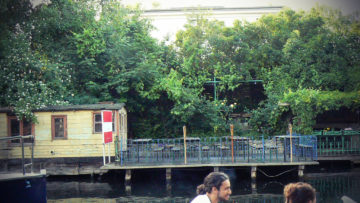


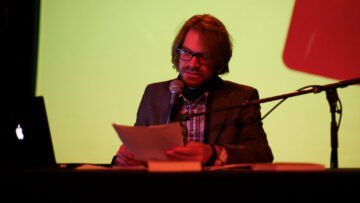


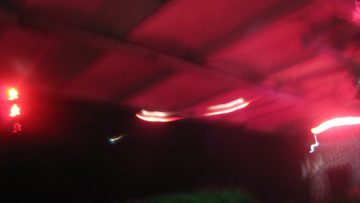


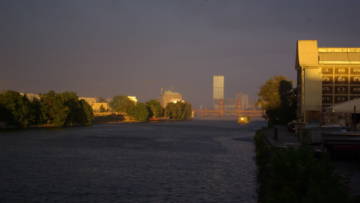



















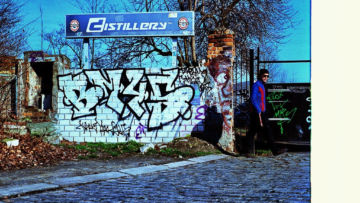






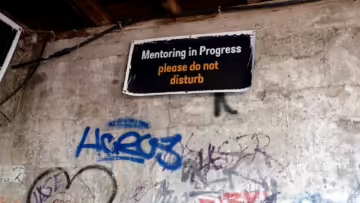

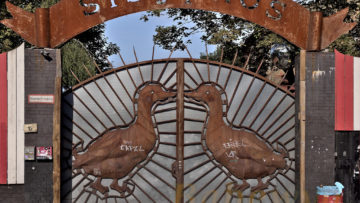
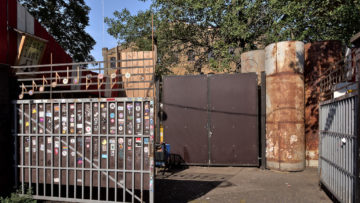

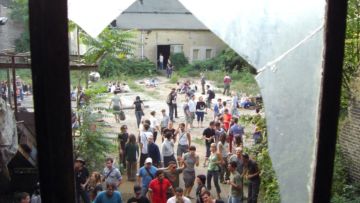










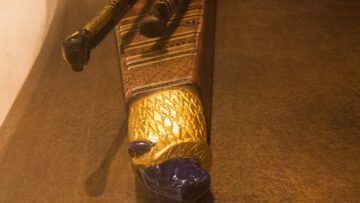














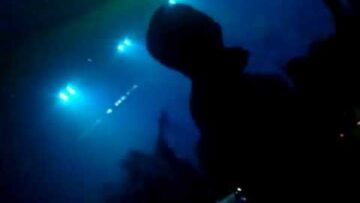














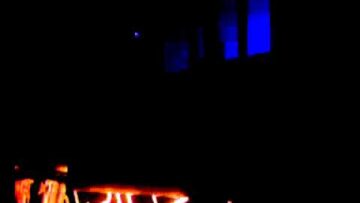













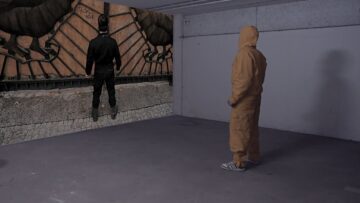

![DJ Rush @ Centrum Erfurt – 07.11.09 [2]](https://techno-tv.net/wp-content/uploads/2025/06/DJ-Rush-@-Centrum-Erfurt-071109-2-360x203.jpg)

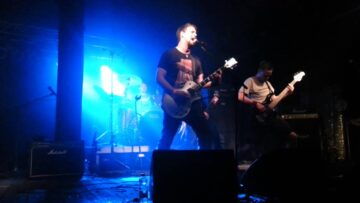











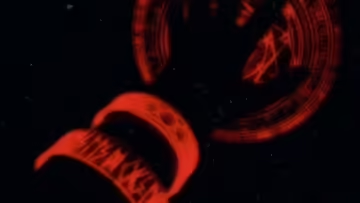












































![Eric Prydz presents [CELL] – Live from Hï Ibiza](https://techno-tv.net/wp-content/smush-avif/2025/01/Eric-Prydz-presents-CELL-Live-from-Hi-Ibiza-360x203.jpg.avif)






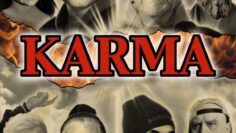


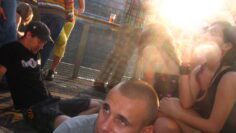


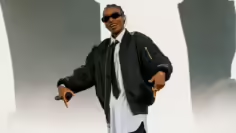






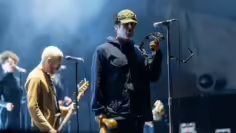


 Deutsch
Deutsch Français
Français Italiano
Italiano Español
Español Русский
Русский 简体中文
简体中文 English
English